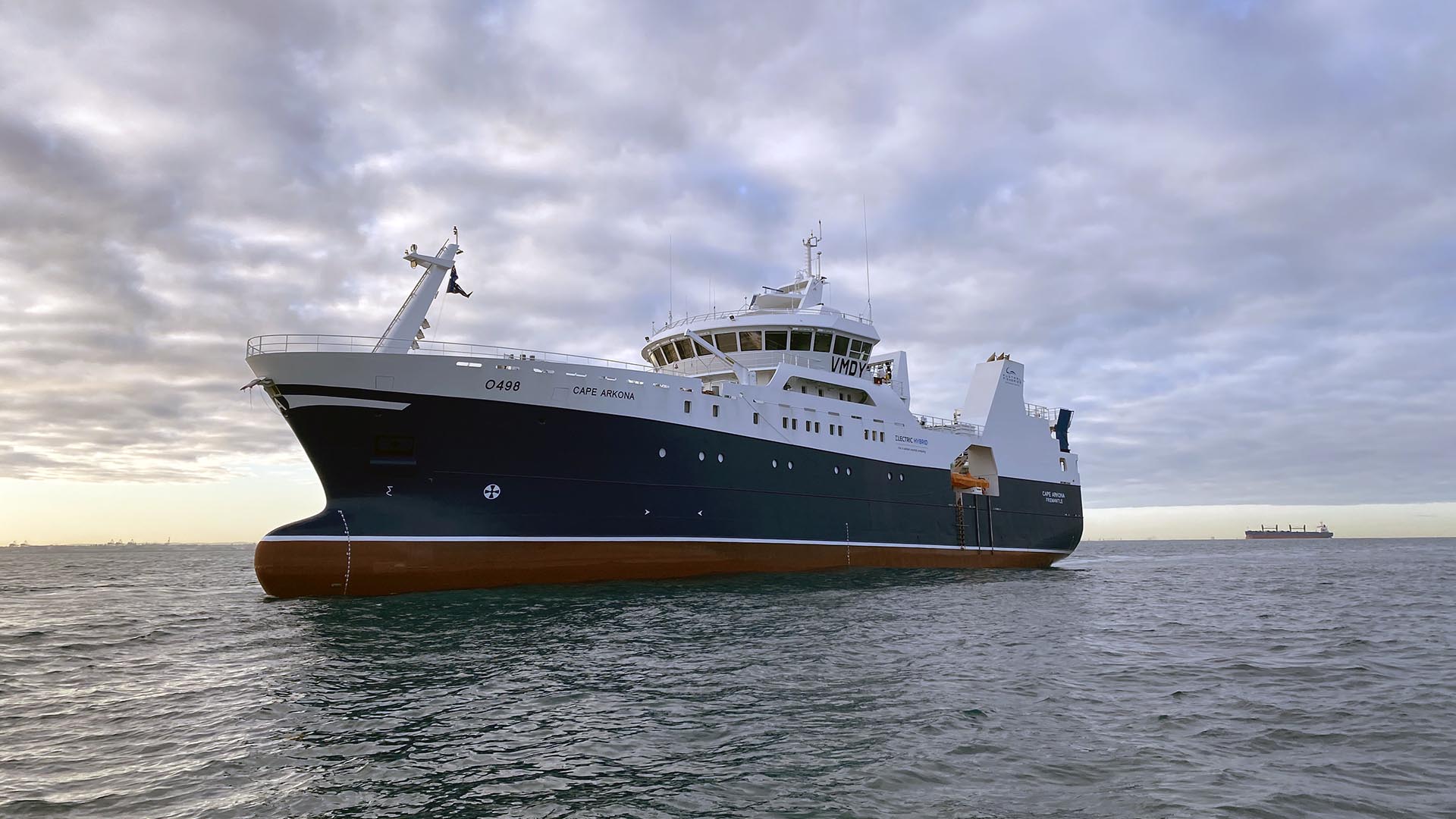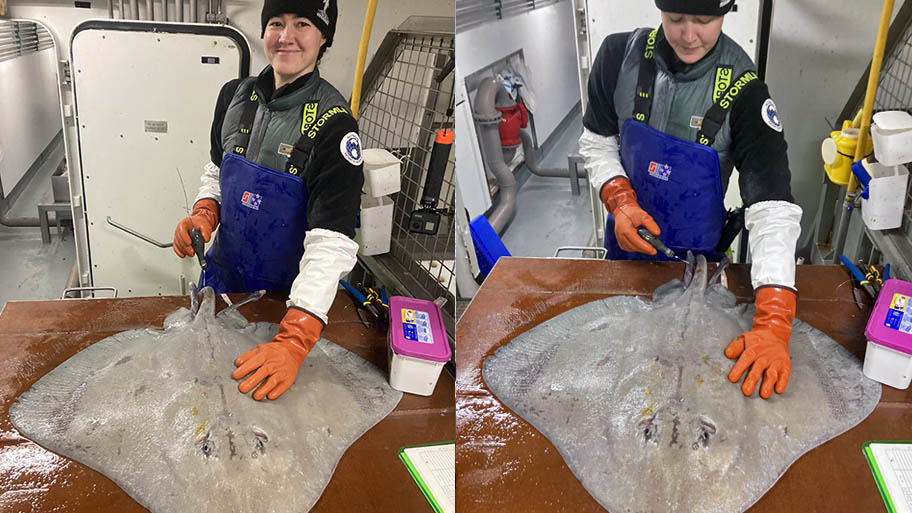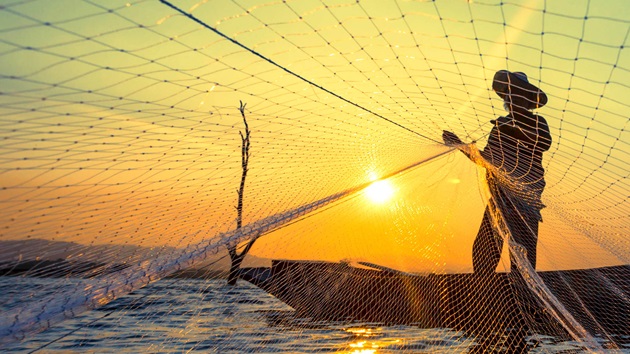PhD student Colette Appert, based at the University of Tasmania, is investigating the survival rates of skates accidentally caught on longlines in the Heard Island and McDonald Island toothfish and icefish fishery.
Colette was awarded a Student Research Grant from the MSC’s Ocean Stewardship Fund, which allowed her to travel to Paris and collaborate with experts in skate bycatch at the Museum of Natural History.
We asked Colette about her research and why protecting deep-sea dwelling skates from the impacts of fishing is so important.

How did you end up studying skate bycatch in a remote fishery?
I was a veterinarian before going into marine science and have always loved solving puzzles and problems. I am also fascinated by animal behaviour and the motivations behind these behaviours.
This project is a perfect combination of trying to solve a real-world problem, learning about mysterious deep-sea creatures and using tags to gather important data on them (known as ‘biologging’).
What are you investigating?
I am currently a year and a half into my PhD, investigating the survival rates of Kerguelen Sandpaper skates that get accidentally caught on fishing gear (longlines) targeting toothfish in the Southern Indian Ocean.
In March 2023, I spent 97 days on board a fishing vessel in the Heard Island and McDonald Island (HIMI) toothfish fishery gathering data on skates to understand what happens to them after they are released. I tagged 24 skates, which were released back into the ocean and tracked and monitored to see how many survived. I also took 100 blood samples, which are being analysed to identify markers of capture-related stress.
During the same voyage we tagged 21 toothfish as part of a study to understand interactions between different populations and post-release survival rates. I also participated in the yearly seabed survey and collected valuable invertebrates to enable colleagues at James Cook University carrying out genetic research.
What is the potential impact of your project? How will this help improve the sustainability of the fisheries?
We know how many skates get caught on the longlines in the HIMI toothfish fishery and how many are released but we don’t know how many survive and continue growing and breeding. This means we can’t accurately estimate the impact of the fishery on skate populations.
My research will help estimate survival rates and provide a vital piece of the puzzle that is understanding the long term effects of the fishery on sandpaper skates.
Why are skates vulnerable to longline fishing? Why is it important that bycatch is reduced?
Deep-sea skates, just like most other deep-sea sharks and rays, have long lives, grow slowly and mature late. This means skate populations take time to recover from interactions with fisheries - if too many are killed or too injured to properly feed and reproduce, the whole population can be at risk of extinction.
We don’t know yet what role deep-sea skates play in the ecosystem, and it would be unfortunate to discover it only once they are gone!
What was the impact of your OSF Student Research Grant?
I was awarded a Student Research Grant through the MSC’s Ocean Stewardship Fund in March 2023. This grant meant I could spend a month in Paris in March 2024 collaborating with researcher Dr Clara Péron who works on skate bycatch in the MSC certified French longline toothfish fishery.
The French fishery is adjacent to the Heard Island and McDonald Island fishery and faces the same skate bycatch challenges. Collaboration with the French fishery and research team allows us to share knowledge and raise awareness of our individual projects and identify important questions and gaps in the data to further improve our collective understanding of skate bycatch.
The team have also provided valuable insights into the biologging data and behaviour analysis I am working on. Together we are laying the ground for future research that will continue to improve the sustainability of bycatch management.



